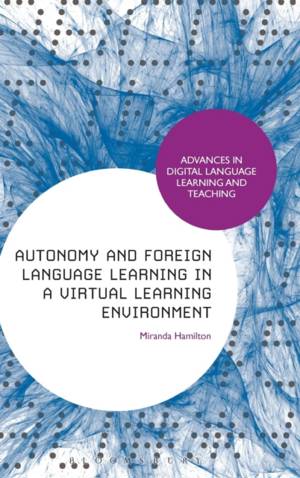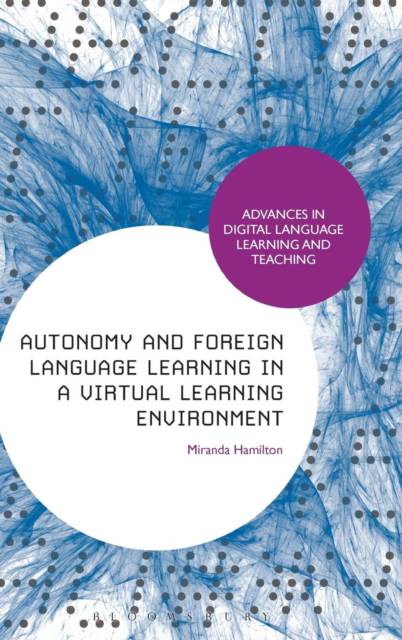
Bedankt voor het vertrouwen het afgelopen jaar! Om jou te bedanken bieden we GRATIS verzending (in België) aan op alles gedurende de hele maand januari.
- Afhalen na 1 uur in een winkel met voorraad
- In januari gratis thuislevering in België
- Ruim aanbod met 7 miljoen producten
Bedankt voor het vertrouwen het afgelopen jaar! Om jou te bedanken bieden we GRATIS verzending (in België) aan op alles gedurende de hele maand januari.
- Afhalen na 1 uur in een winkel met voorraad
- In januari gratis thuislevering in België
- Ruim aanbod met 7 miljoen producten
Zoeken
Autonomy and Foreign Language Learning in a Virtual Learning Environment
Miranda Hamilton
€ 373,45
+ 746 punten
Uitvoering
Omschrijving
Digitalised learning with its promise of autonomy, enhanced learner choice, independence and freedom, is an intuitive and appealing construct but closer examination reveals it to be a rather simplistic proposition, raising the following questions.
-What do we mean by autonomy?
-What are we implying about the role of the teacher, the classroom, and interaction between learners?
-What do we understand about the impact of technology on the ecology of the learning environment?
This book describes the use of a Virtual Learning Environment (VLE) by a group of advanced English language learners in Mexico, comparing what students thought and what they did in response to the technology. The theoretical aim of the book is to work towards the construction of a theory of the development of autonomy and virtual learning in an EFL context. Enhanced understanding about the relationship between autonomy and technology has the potential to inform academics, software designers, materials writers, teacher educators, and teachers and to help learners in
their quest to acquire a foreign language.
-What do we mean by autonomy?
-What are we implying about the role of the teacher, the classroom, and interaction between learners?
-What do we understand about the impact of technology on the ecology of the learning environment?
This book describes the use of a Virtual Learning Environment (VLE) by a group of advanced English language learners in Mexico, comparing what students thought and what they did in response to the technology. The theoretical aim of the book is to work towards the construction of a theory of the development of autonomy and virtual learning in an EFL context. Enhanced understanding about the relationship between autonomy and technology has the potential to inform academics, software designers, materials writers, teacher educators, and teachers and to help learners in
their quest to acquire a foreign language.
Specificaties
Betrokkenen
- Auteur(s):
- Uitgeverij:
Inhoud
- Aantal bladzijden:
- 256
- Taal:
- Engels
- Reeks:
Eigenschappen
- Productcode (EAN):
- 9781441150646
- Verschijningsdatum:
- 13/06/2013
- Uitvoering:
- Hardcover
- Formaat:
- Genaaid
- Afmetingen:
- 155 mm x 236 mm
- Gewicht:
- 612 g

Alleen bij Standaard Boekhandel
+ 746 punten op je klantenkaart van Standaard Boekhandel
Beoordelingen
We publiceren alleen reviews die voldoen aan de voorwaarden voor reviews. Bekijk onze voorwaarden voor reviews.









